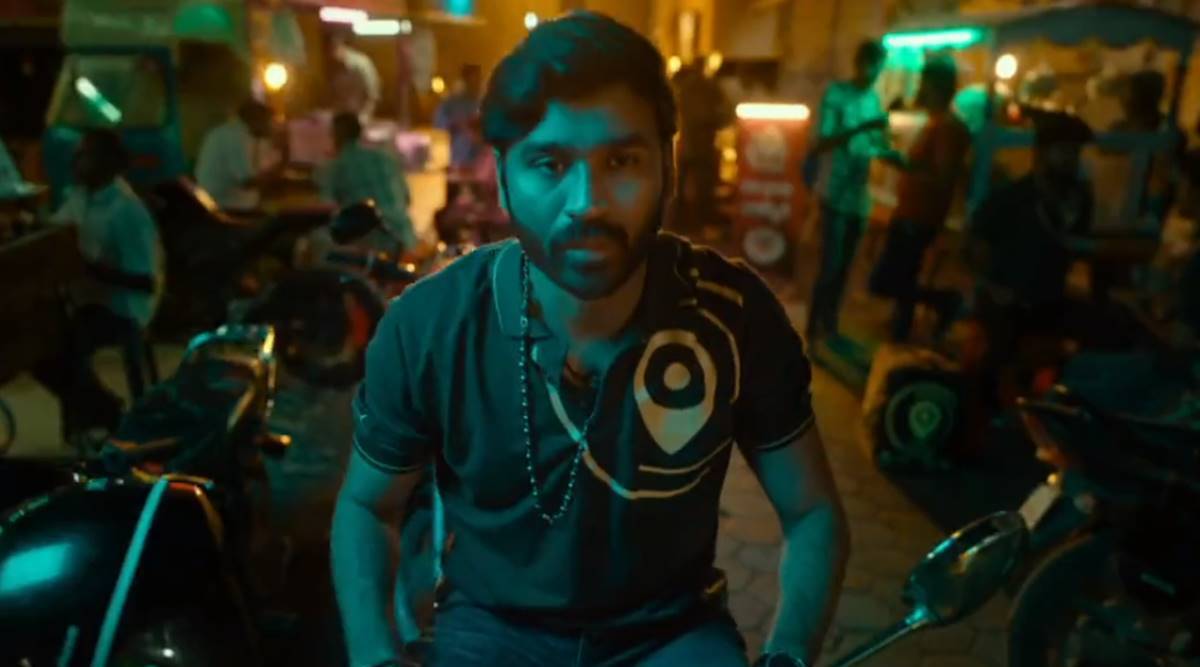 In today’s urban India, the delivery boy is as anonymous as they come, their anonymity compounded further by the ubiquitous face mask.
In today’s urban India, the delivery boy is as anonymous as they come, their anonymity compounded further by the ubiquitous face mask.I just got back from the movie theatre after having watched Dhanush’s new outing, Thiruchitrambalam, in which he plays the eponymous protagonist, an unassuming delivery boy discovering the ins and outs of love. On the way back, I couldn’t help but count the number of delivery boys ferrying food parcels to various hungry customers. I spotted 12 of them, all on the 10-minute drive home. As the world in general, and traffic conditions in particular, rapidly return to pre-pandemic conditions, they have become a permanent fixture on Indian roads. With their comically-large rectangular backpacks strapped to their backs, risking life and limb to get groceries and whatnot delivered in under 30 minutes, the delivery boy is everywhere, much like the State Bank of India ATM in the early 2000s.
And yet, they are completely invisible too. There’s a scene early on in the film when Dhanush makes a delivery to a standard urban high-rise, and the door opens to reveal a former classmate who suddenly recognises him. I couldn’t help but reflect on my standard protocol when it comes to accepting deliveries nowadays. There’s a mumbled thank you, with almost zero eye contact. Instead, I find myself staring intently at my latest, completely unnecessary purchase from Amazon. The face, more often than not, I am sorry to say, does not register.
It’s interesting that Thiruchitrambalam’s director, Mithran R Jawahar, chose this particular vocation for his hero. Dhanush’s character is one who begins the movie in a state of constant fear because of a personal tragedy. He prefers to stay out of the limelight and go about his day quietly, no muss, no fuss. Even when he becomes pivotal in solving a missing person’s case for the police, he literally vanishes from the scene before the media arrives to celebrate the timely efforts of the cop in charge.
In that sense, in today’s urban India, the delivery boy is as anonymous as they come, their anonymity compounded further by the ubiquitous face mask. Be it in the eyes of their customers, employers, or even the government, these gig workers are at best seen, not heard. They work insanely long hours, seven days a week, and find themselves completely at the mercy of startup behemoths who unilaterally decide what is best for them. Recently, an article spoke of how Swiggy drivers found their wages slashed to almost a third overnight, while Zomato implemented similar wage revisions with absolutely no consultations held with the workers. When Swiggy drivers protested, they were told they could choose to leave.
Subscriber Only Stories
The problem is the lack of a singular voice for the gig workers themselves in the form of a union or lobby, that can take up their cause at the highest echelons. They also suffer from limited job mobility because of the fiercely competitive job market, where, (as the film’s heroine, an effortlessly charming Nithya Menon) people with two degrees are struggling to find work. In most cases, they do not have an option but to go with what is offered to them. Even as the government is now batting for social security for gig workers in the form of insurance and gratuity, headers like workplace safety or wage protection find no place in these labour law revisions.
In many ways, today’s gig worker reminds me of the factory worker from the ’70s and ’80s — exploited by the landed class till they decided to take power into their own hands. Going by history, maybe it is just a matter of time before the Zomatos and Swiggies of the world are legally forced to look at them as full-time employees and not fly-by-the-hour modern slave labour. At one point in the movie, Dhanush tells Rasika Khanna’s character, a former classmate who lives in one of the high rises he delivers to, that they are from two worlds. Hopefully, that day is not far off when these two worlds become one, especially when it comes to job security and better working conditions for Thiru and his community.
The writer is a stand-up comic and film buff, currently serving as editor-in-chief at Tinkle Comics